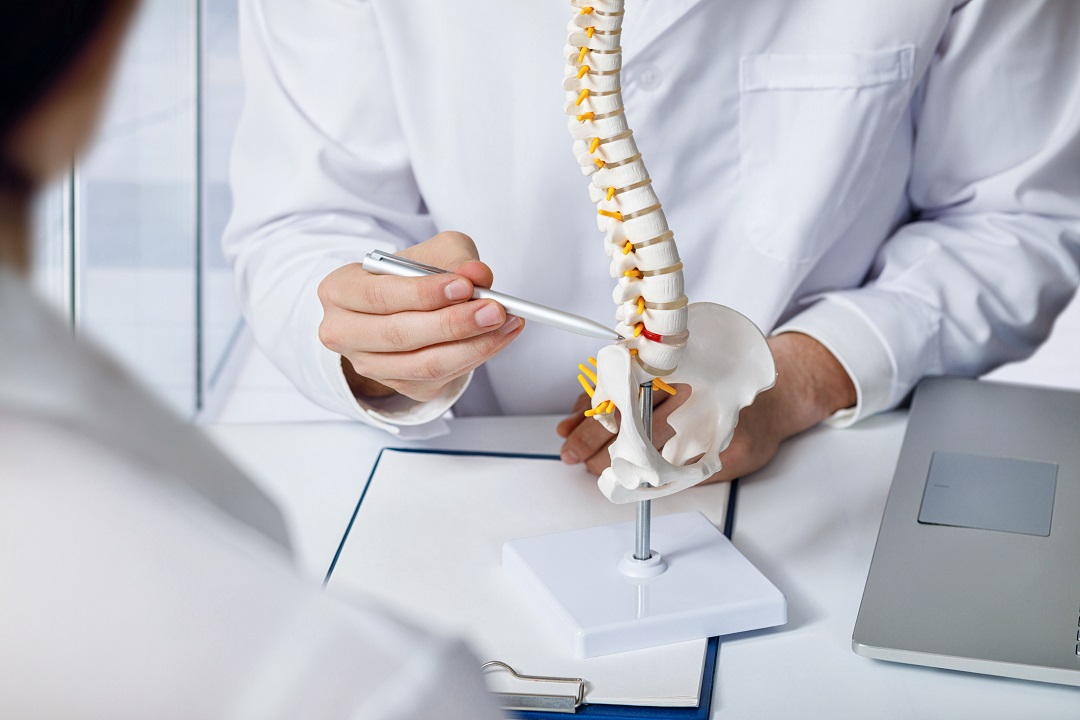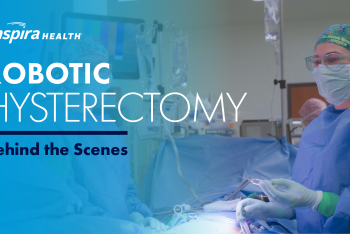Understanding the most common surgeries can help prepare patients for potential procedures. Knowing...
Read More
Hernias are a common condition in both men and women. Inspira providers have a variety of options for treatment, from watchful waiting to surgical intervention.
A hernia is a medical condition characterized by the protrusion of an organ or tissue through an opening or weak spot in the surrounding muscles or connective tissue. This can occur in various parts of the body, but one of the most common types is an abdominal hernia. Abdominal hernias often manifest as a visible bulge or lump, typically when part of an organ in your abdomens, such as a portion of the intestine, pushes through a weakened area in the abdominal wall.
Hernia symptoms often include a visible bulge or lump, pain or discomfort at the site of protrusion, and increased discomfort during activities that increase pressure in your abdomen, such as lifting or straining. Other signs may involve difficulty with bowel movements or feeling heaviness in the affected area.
To diagnose a hernia, your provider will conduct a physical exam to identify a visible bulge or assess symptoms. Your provider may use additional diagnostic tools, such as ultrasound or CT scans, to confirm the presence of the hernia and determine its severity. Your provider will accurately identify the type of hernia and provide the necessary information for an appropriate treatment plan through monitoring or surgical intervention.


In some cases, especially with a small hernia or one that doesn’t present symptoms, your health care provider may recommend monitoring the condition without immediate intervention and assessing if it worsens.

You may be advised to change your daily activities, such as avoiding heavy lifting, to alleviate symptoms and prevent the hernia from worsening.

For more severe or symptomatic hernias, surgery may be necessary to repair the weakened area. Surgery is often performed laparoscopically for a quicker recovery and to reduce postoperative discomfort.
The goal of the hernia surgery is to repair the opening in the muscle wall.
We understand that everyone’s journey with a hernia is unique. Our team collaborates to create individualized treatment plans, considering factors like your overall health, lifestyle and the impact of the hernia on daily activities. Our approach aligns with your well-being and preferences, whether it involves watchful waiting, lifestyle modifications or surgical intervention.
You can expect follow-up appointments and support to help you stick with postoperative guidelines after robotic hernia surgery. Our focus remains on ensuring optimal recovery and long-term well-being for everyone seeking hernia treatment at Inspira.
Small hernias may sometimes be managed with watchful waiting, but surgical intervention is often necessary to prevent complications and ensure a lasting repair.
Not all hernias cause pain, but common symptoms include a visible bulge, discomfort during activities and tenderness at the hernia site. Seeking medical evaluation is crucial for an accurate diagnosis.
Recovery varies, but minimally invasive surgeries often result in quicker healing with smaller incisions. You may resume normal activities gradually, following postoperative guidelines provided by your health care team.

Understanding the most common surgeries can help prepare patients for potential procedures. Knowing...
Read More
Amanda Mirmanesh, D.O., is an OB/GYN at Inspira Medical Center Vineland. Follow her as she arrives...
Read More
Preparing for surgery can feel overwhelming, but there are ways to minimize your anxiety and focus...
Read More